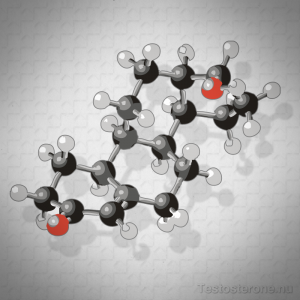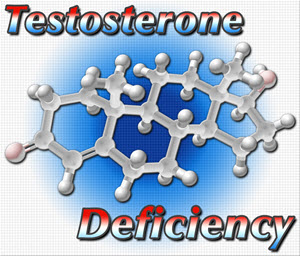
Before you can start a testosterone replacement treatment program, you need to know what your current levels of testosterone are.
This information is discovered with a simple blood test that is conducted at your first appointment with one of our specializing physicians.
The unit of measure for testosterone is nanogram per deciliter (ng/dL) or nanomoles per liter (nmol/L) when measuring total testosterone and picogram per deciliter (pg/dL) or picomoles per liter (pmol/L).
For those of you who are counting a gram = 1,000,000,000 nanograms and a nanogram =1000 picograms. A little goes a long way.
Once they get your results back from the lab, they can determine whether your levels are low enough to require testosterone replacement therapy and what dosage will be necessary for you to maintain a healthy level of testosterone.
In men, any level lower than 500 ng/Dl will usually lead to at least some of the negative symptoms related to testosterone deficiency, and levels in the 250300ng/Dl range are often associated with severe symptoms and a general feeling of being discontent with oneself.
Why are Testing Testosterone Levels Important?
 While there are many symptoms associated with testosterone deficiency and usually diagnosing it is relatively straightforward there are other disorders and diseases that can cause some of the same symptoms.
While there are many symptoms associated with testosterone deficiency and usually diagnosing it is relatively straightforward there are other disorders and diseases that can cause some of the same symptoms.
By having the testing done by a physician you can be sure that the underlying cause of your symptoms is related to your testosterone levels and not something else that might be more serious or even life-threatening.
Under no circumstances should you attempt to start your own testosterone therapy without first getting tested by a physician and getting a legal prescription.
Another critical reason to have an initial testosterone level test, as well as follow-up tests every 3-6 months is to make sure your dosage is set correctly.
Overdosing is the leading cause of the side effects of testosterone therapy and the only way to be sure this doesn't become an issue is to monitor your levels.
On the other hand, under-dosing means you won't be getting all the benefits of testosterone replacement therapy that you should be.
As you age your natural levels will continue to fall and this decline happens at a different rate for different people so it's important to keep track of this so you and your doctor can increase your dosage when necessary.
How Testosterone Produced in the Body
In men, testosterone is produced primarily in the testes and secondarily in the adrenal glands. In women, it is created in the ovaries and adrenal glands. Natural testosterone production is regulated by the pituitary gland.
The pituitary gland increases testosterone production by releasing luteinizing hormone (LH) which is used to send a signal to the testes instructing them to increase testosterone production.
Causes of Low Testosterone
There are two categories of underlying factors behind lowered testosterone. When the reason is in the testosterone-producing organs is referred to as "primary hypogonadism."
When the cause is in the pituitary gland, it is called "secondary hypogonadism." When the problem is related to the hypothalamus, it is referred to as "tertiary hypogonadism."
 Primary Hypogonadism:
Primary Hypogonadism:
- Undescended testicles - If the testes fail to migrate from inside the abdomen into the scrotum during fetal development or in the first year or two of life, the testes may become damaged and unable to produce adequate amounts of testosterone.
- Injury to the scrotum - If the testes are injured, they may not be able to produce adequate testosterone. Damage to one testicle does not often to lead to low levels if the other testis remains normal.
- Cancer therapy - Chemotherapy and radiation therapy can damage the interstitial cells in the testes responsible for testosterone production. This decrease in testosterone production may be temporary as the cells recover, or it may be permanent.
- Aging - Testosterone levels decrease with aging. Usually, enough testosterone is manufactured to allow for adequate bodily functions.
- Mumps orchitis - The mumps virus can cause inflammation of the testes in males, and if the illness occurs in puberty or adulthood, the damage to the testes may lead to low testosterone production. Immunization against the mumps has significantly decreased the incidence of this illness.
- Chromosomal abnormalities - A typical male has one X and one Y chromosome (an average female has two X chromosomes). In Klinefelter's syndrome, in men, an extra X chromosome is present, and among other anatomic issues, there is abnormal development of the testes and decreased ability to manufacture testosterone.
- Ovary conditions in women - Premature ovarian failure and surgical removal of both ovaries (bilateral oophorectomy) are conditions associated with lower circulating testosterone levels.
 Secondary and Tertiary Hypogonadism:
Secondary and Tertiary Hypogonadism:
- Pituitary Gland Damage - Damage to the pituitary gland may occur because of tumors of the gland itself or because of damage caused by the side effects of treatment of nearby brain tumors.
- Malformed Hypothalamus - Hypothalamus malformations can prevent normal function. Kallman's syndrome is one example.
- Circulation Problems - Compromised blood flow to these glands from other conditions such as excessive systemic blood loss.
- Disease Induced Inflammation - Inflammation caused by tuberculosis and sarcoidosis may affect the pituitary gland.
- HIV/AIDS Induced Inflammation - HIV and AIDS may also cause inflammation of both the hypothalamus and pituitary.
- Non-Prescribed Medications - Illegal use of anabolic steroids, for example in bodybuilding, can cause hypogonadism and low testosterone levels.
Treating Low Testosterone Levels
Managing low testosterone levels is very straightforward. Once you've seen a doctor and confirmed that you are suffering from low levels of testosterone your doctor will prescribe you one of many types of testosterone (which includes injections, gels, creams, and patches) based on your needs and medical history.
Simply follow the prescribed course of treatment, and you will be able to correct your levels and enjoy the benefits of testosterone replacement therapy.
How to Get a Prescription for Testosterone
If you're ready to take control of your health and do something about your testosterone levels, please give us a call at 1-800-469-3343 or fill out the contact form on the right side of the page.
We will connect you with one of our specializing physicians in your area who can help you get started.
Reference
Contact Us Today For A Free Consultation

- Testosterone for Women [Last Updated On: December 1st, 2023] [Originally Added On: December 29th, 2013]
- Testosterone Androgen [Last Updated On: December 11th, 2023] [Originally Added On: December 29th, 2013]
- Testosterone and Body Building [Last Updated On: December 14th, 2023] [Originally Added On: December 30th, 2013]
- Testosterone Levels [Last Updated On: December 6th, 2023] [Originally Added On: December 31st, 2013]
- Testosterone Gel, Cream, and the Testosterone Patch [Last Updated On: November 28th, 2023] [Originally Added On: December 31st, 2013]
- Buy Testosterone | Types of Testosterone Replacement Therapy Programs, Injections, Cream and Gel [Last Updated On: December 13th, 2023] [Originally Added On: December 31st, 2013]
- Buy Testosterone Injections Online, Testosterone Prescription for Low T, Testosterone Replacement Therapy [Last Updated On: October 16th, 2020] [Originally Added On: January 1st, 2014]
- Aging and Testosterone Replacement Therapy [Last Updated On: December 12th, 2023] [Originally Added On: January 3rd, 2014]
- What Causes Low Testosterone [Last Updated On: December 10th, 2023] [Originally Added On: January 7th, 2014]
- Hormone Levels in Men [Last Updated On: December 4th, 2023] [Originally Added On: January 12th, 2014]
- Hormone Level Testing [Last Updated On: November 29th, 2023] [Originally Added On: January 13th, 2014]
- Types of Testosterone Products and Delivery [Last Updated On: December 8th, 2023] [Originally Added On: January 22nd, 2014]
- Testosterone Therapy Helps Men with Low-T Ward Off Prostate Cancer [Last Updated On: May 29th, 2024] [Originally Added On: December 29th, 2019]
- The Importance of Dietary Fat for Testosterone Production [Last Updated On: November 27th, 2021] [Originally Added On: January 2nd, 2020]
- Testosterone Deficiency and Low-T at Epidemic Levels Among Men in the United States [Last Updated On: May 27th, 2024] [Originally Added On: May 17th, 2020]
- The Effects of Testosterone Therapy on Male Patients -- Who Should Use Testosterone? [Last Updated On: December 20th, 2023] [Originally Added On: June 16th, 2020]
- Does Ibuprofen Contribute to Low Testosterone? [Last Updated On: January 27th, 2024] [Originally Added On: June 20th, 2020]
- The Link Between Testosterone and Lower Rates of Autoimmune Diseases Among Men [Last Updated On: January 30th, 2024] [Originally Added On: June 21st, 2020]
- Weight Cycling and the Problem with Crash Dieting [Last Updated On: April 8th, 2024] [Originally Added On: July 30th, 2020]
- Reexamining Bio-Identical Testosterone Therapy [Last Updated On: November 21st, 2021] [Originally Added On: August 12th, 2020]
- Understanding how Muscle and Fat Impact Body Mass, Weight, and Health [Last Updated On: April 15th, 2024] [Originally Added On: August 25th, 2020]
- The Role of Nitric Oxide in Cancer Proliferation And Prevention [Last Updated On: May 3rd, 2024] [Originally Added On: August 26th, 2020]
- Understanding Heartburn in the 21st Century [Last Updated On: April 24th, 2024] [Originally Added On: August 28th, 2020]
- What is Erectile Dysfunction? [Last Updated On: April 20th, 2024] [Originally Added On: August 30th, 2020]
- Sermorelin Acetate Drug Information [Last Updated On: April 7th, 2024] [Originally Added On: August 31st, 2020]
- Exercise and Mental Health [Last Updated On: April 5th, 2024] [Originally Added On: September 1st, 2020]
- The Importance of Proteins, Carbs, and Fats [Last Updated On: March 11th, 2024] [Originally Added On: September 2nd, 2020]
- Low-T Treatment Before and After -- How Testosterone Therapy Improves Vitality [Last Updated On: April 9th, 2024] [Originally Added On: September 6th, 2020]
- Changes to LabCorp Guidelines for Low-T Diagnosis and How They Impact Your Treatment [Last Updated On: November 28th, 2021] [Originally Added On: September 22nd, 2020]
- The Effects of Testosterone on Asthma Prevalence Among Men and Women [Last Updated On: February 19th, 2024] [Originally Added On: October 6th, 2020]
- 7 Exercises to Elevate Testosterone Levels [Last Updated On: November 20th, 2021] [Originally Added On: October 10th, 2020]
- Vitamin A is Essential for Good Health - Are You Getting Enough ? [Last Updated On: April 16th, 2024] [Originally Added On: October 14th, 2020]
- Testosterone and Diet – How to Support Testosterone Levels with Healthy Eating [Last Updated On: June 7th, 2024] [Originally Added On: October 29th, 2020]
- The Significance of Telomeres in Stem Cell Treatments [Last Updated On: March 16th, 2024] [Originally Added On: November 27th, 2020]
- The Influence of Testosterone on Protective Mating Behaviors in Men [Last Updated On: January 25th, 2024] [Originally Added On: December 6th, 2020]
- The Role of Testosterone in Women's Health [Last Updated On: December 24th, 2023] [Originally Added On: December 7th, 2020]
- Testosterone Promotes Bone Health and Can Help Treat Osteoporosis [Last Updated On: February 15th, 2024] [Originally Added On: December 17th, 2020]
- The Relationship Between Testosterone and Cortisol [Last Updated On: April 2nd, 2024] [Originally Added On: December 19th, 2020]
- The Importance of Sex Hormone-Binding Globulin (SHBG) for Healthy Testosterone Levels [Last Updated On: March 9th, 2024] [Originally Added On: December 28th, 2020]
- 12 Health Issues That Can Kill Libido and Limit Sexual Performance [Last Updated On: May 23rd, 2024] [Originally Added On: January 3rd, 2021]
- 4 Foods to Boost Your Testosterone Levels [Last Updated On: February 7th, 2024] [Originally Added On: January 4th, 2021]
- Low Testosterone Symptoms [Last Updated On: December 31st, 2023] [Originally Added On: January 7th, 2021]
- Is Male Menopause Real? The Science of Andropause [Last Updated On: January 15th, 2024] [Originally Added On: January 11th, 2021]
- Relieve Fatigue and Increase Energy with Testosterone Replacement Therapy [Last Updated On: January 16th, 2024] [Originally Added On: January 16th, 2021]
- How to Administer a Testosterone Injection -- Low-T Injection Guide [Last Updated On: February 28th, 2024] [Originally Added On: January 17th, 2021]
- Testosterone Levels Associated with Serotonin Activity in the Brain [Last Updated On: March 26th, 2024] [Originally Added On: January 19th, 2021]
- Grumpy Old Man Syndrome – Causes and Treatments [Last Updated On: June 8th, 2024] [Originally Added On: January 22nd, 2021]
- The Effects of Beer on Testosterone Production and Gynecomastia [Last Updated On: March 21st, 2024] [Originally Added On: January 30th, 2021]
- Testosterone Frequently Asked Questions [Last Updated On: February 6th, 2024] [Originally Added On: February 26th, 2021]
- Testosterone Supplements: Vitamin and Amino Acid Pills Versus Real Testosterone [Last Updated On: September 14th, 2023] [Originally Added On: March 1st, 2021]
- Testosterone Side Effects, Risks, Dangers and Negative Effects [Last Updated On: August 24th, 2023] [Originally Added On: March 2nd, 2021]
- Testosterone for Men [Last Updated On: February 20th, 2024] [Originally Added On: April 13th, 2021]
- Hormone Replacement Therapy: Commonly Asked Questions [Last Updated On: February 20th, 2024] [Originally Added On: June 16th, 2023]
Word Count: 1040





















